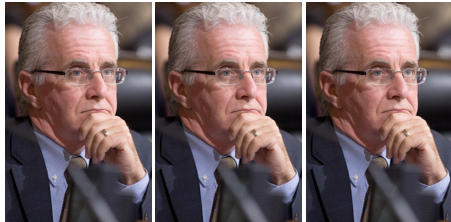CommentsTHIS IS WHAT I KNOW-In my last column, I wrote about the increasing grassroots activism to address quality of life issues, which include a Wild West approach to development where developers fund environmental reviews and politicians greenlight variances and spotty spot zoning to get around the general plan.
While the Coalition to Preserve LA collects signatures to place the Neighborhood Integrity Initiative on the March 2017 ballot, other groups are filing lawsuits to slow down the rash of development in the meantime.
As developers and investors work to get in their “last slicks” before a possible turnaround, many see the fast track approval of mega-developments as propelled by what they see to be an obsequious city council and administration.
Save Valley Village, in an unprecedented move, has filed a suit against all 15 city councilmembers for their “unlawful voting pact.” A spokesperson for the group says, “For the City Council to avoid CRIMINAL charges, each councilmember will have to make his own decisions and no longer succumb to the illegal voting pact.”
Let’s take a look at Penal Code 86, which criminalizes vote trading agreements. The code grew from the State Constitution requirement that all municipal elections be non-partisan. Removing political parties from the equation would remove corruption from local politics. Wrong. Without parties in play, individual councilmembers had to find some other means to have their measures adopted by the entire city council or at or at least 8 of 15 votes. Enter vote trading.
In 2006, the State Legislature amended Penal Code 86 to consider any type of voting agreement to be a form of criminal bribery. Councilmembers can’t legally agree to give or withhold his or her vote in return that another councilmember will give or withhold a vote on this or any other matter.
However, Penal Code 86 doesn’t appear to have halted or even slowed down the unlawful vote trading pact that is the key to developer power at City Hall. Campaign contributions from developers and their attorney fill the coffers of councilmembers at the city and state level. State politicians are not held to the same financial caps as city politicians so the impact on the state level may be even greater.
What’s the end result? Land-use entitlement approvals for specific plan amendments, zone changes, bonuses, and variances all require public hearings and protocol. Save Valley Village charges that the land use entitlements are being approved without this protocol, as shown by evidence submitted into the case record that proves noncompliance.
To top things off, Mayor Eric Garcetti is supporting Assembly Bill 2356 authored by Assembly Member Jimmy Gomez. Kathryn Phillips, director at the Sierra Club of California, wrote an April 18 column in CityWatch disclosing the mayor’s involvement. AB 2356 would change the California Environmental Quality Act (CEQA) to allow for infill planning to circumvent disclosure of environmental impact of proposed development projects.
Mayor Garcetti has also received some heat for his role in the “I’ll Scratch Your Back, You’ll Scratch Mine” voting agreements that have become commonplace. Back in December 2010, then Council President Garcetti boasted of a 99.35% record for unanimous votes in the Council. A unanimous track record has a flipside to that perceived efficiency, placing a whole lot of power in the hands of a few. Save Valley Village points to Los Angeles Councilmember Krekorian (photo above), who is the subject of the group’s recall effort.
Critics say Krekorian, who represents North Hollywood, Valley Village, and Studio City, has favored commercial interests above community requests. Save Valley Village accuses the councilmember of approving zone changes, opposing efforts to designate local buildings as historic monuments, and failing to respond to concerns about dangerous demolitions.
The catalyst for the effort to collect recall petition signatures is the destruction of the Hermitage Avenue home of a 17-year old Norma Jean Dougherty, better known as Marilyn Monroe. In June, the property was razed just days before a Cultural Heritage Commission hearing on the case. Critics say Krekorian failed to support the landmark request, along with his failure to act in another preservation case involving Henry’s Tacos in North Hollywood, both of which critics point to as an example of “I’ll Scratch Your Back, You’ll Scratch My Back” voting agreements. The city council voted unanimously to approve the demolition of Monroe’s former home to pave way for a condo project.
Per the Save Valley Village website, the unincorporated association is “working towards enforcing laws and legislation to protect us from developer-initiated zone changes and City Hall-motivated over-densification that erode the character of our neighborhoods and the quality of our lives by forcing massive developments into already established, healthy and sustainable communities and neighborhoods.”
The association addresses a “disturbing loss of landmarks, homes, and cultural character. Projects go forward, notwithstanding violations of California Government Codes, Environmental/CEQA laws and local ordinances.” The increased density and growth of McMansions are threatening the Valley Village way of life, resulting in the loss of decades-old trees, historic homesteads, open spaces, and affordable housing, as demonstrated by the 300 percent rise in Ellis Act evictions from 2013 to 2014.
Elected officials, whether at the local, state, or federal level, have a responsibility to represent the needs and concerns of their constituents, not only those interests with the deepest pockets.
Grassroots groups like Save Valley Village are doing what they can to keep the fox from the hen house, to protect the interests of the rest of us and to save the integrity of each neighborhood in our city.
(Beth Cone Kramer is a successful Los Angeles writer and a columnist for CityWatch.) Prepped for CityWatch by Linda Abrams.
Sidebar

 CityWatch Los Angeles
Politics. Perspective. Participation.
CityWatch Los Angeles
Politics. Perspective. Participation.
10
Mon, Feb















